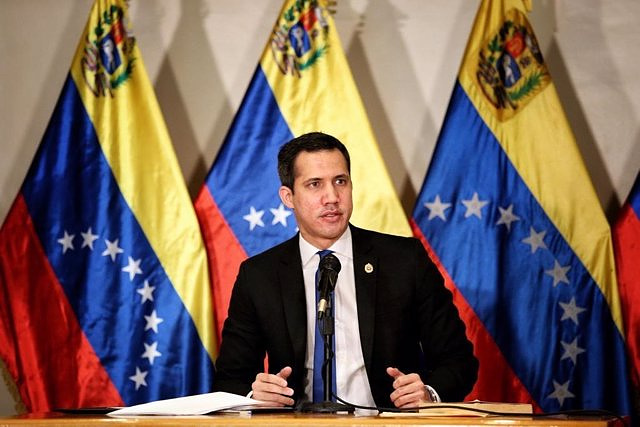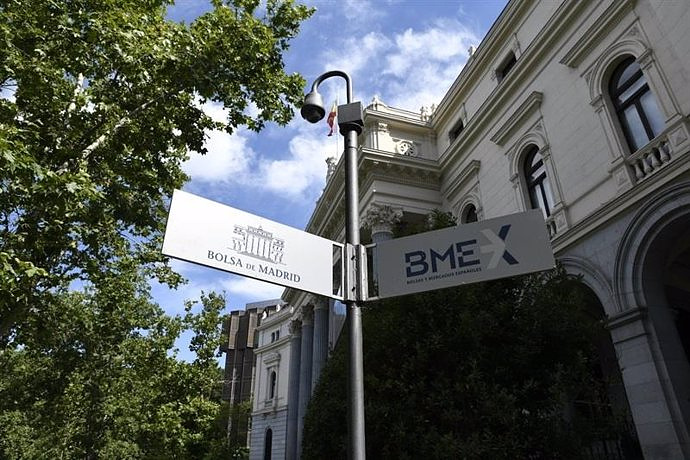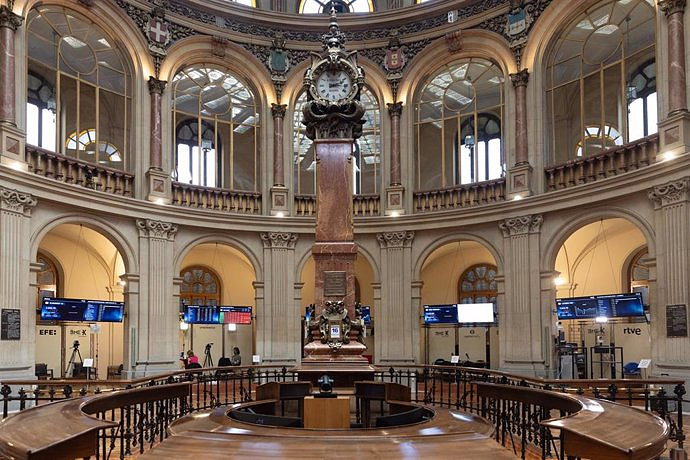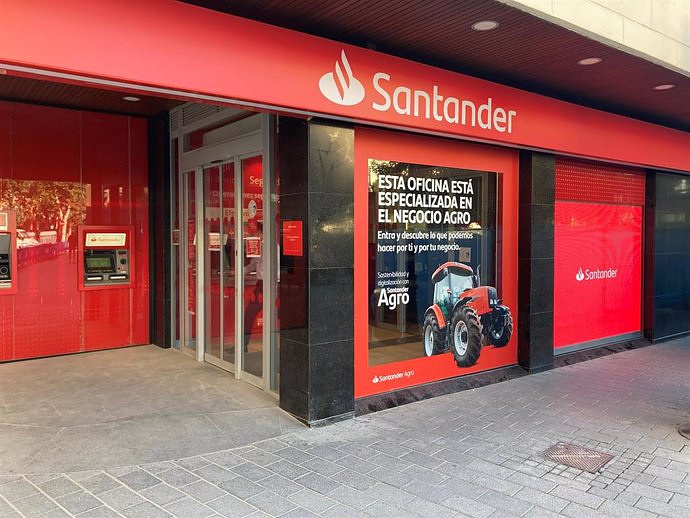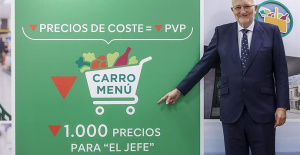MADRID, 2 Ene. (EUROPA PRESS) -
The end of the "interim government" of Venezuela, a tool constituted by the political opposition as an alternative to Nicolás Maduro, marks an unprecedented turning point. Juan Guaidó, proclaimed 'president in charge' in January 2019, has not managed to appease the discomfort of some increasingly critical partners who have been reproaching him for months for the lack of progress against a Maduro who is increasingly integrated into the international community.
Below is a review of some of the main dates that have marked Venezuelan politics in recent years:
Maduro, successor to Hugo Chávez, obtains a second term with 68 percent of the votes, in elections marked by the absence of big names from the opposition. The parties that are detractors of Chavismo consider that there are no minimum democratic guarantees, which translates into a low participation of 46 percent.
Despite the internal unrest and the wave of criticism from Western governments, Maduro takes office for his second term, at a turning point in international positioning. The governments that did not recognize the May 2018 elections, including Spain, do not admit that Maduro can continue as president either.
The president of the National Assembly, Juan Guaidó, argues the absence of a legitimate head of state to establish himself as 'president in charge', by virtue of a path that contemplates the Constitution itself. More than fifty countries, including the United States and Spain, endorse this step and recognize Guaidó as the only valid interlocutor.
Guaidó appears at dawn with a group of soldiers and his partner Leopoldo López, symbol of the 2014 protests and until then in custody, to announce 'Operation Freedom', called to be the final attack against the Executive. After hours of uncertainty, the mobilization fades.
Rumors arose about the reasons and circumstances of this operation, a coup attempt in the eyes of the Executive. Washington maintains that several senior Chavista officials repented at the last moment, something that has never been proven.
A sector of the opposition tries to gain control of the National Assembly, in a chaotic session supported by Chavista ranks and which ends with Luis Parra as the supposed new head of the legislative body. Neither the main opposition parties nor the governments allied to Guaidó grant any kind of validity to this movement.
Guaidó is on a three-week tour that takes him through some of the countries that have supported him the most in the past year, in an attempt to relaunch his cause and show that the government does not control his movements. Madrid is among the stops.
Chavismo announces the call for new parliamentary elections, without any kind of consensus. Months of tensions begin in which most of the opposition once again distances itself from these preparations and warns that, without its approval, there will be no renewal of the National Assembly.
On December 6, the parliamentary elections promoted by the Government are held, to which the opposition responds with a new consultation from December 5 to 12 to try to demonstrate that a majority of the population wants an end to the "usurpation" of Maduro.
Chavismo is easily opposed in these elections, again without the recognition of a large part of the international community.
The division became apparent again the following month, as Chavismo appropriated the National Assembly at the same time that the large opposition groups, led by Guaidó, considered their mandate extended 'de facto'. The opposition maintains its own Assembly, without real powers on a day-to-day basis.
During that year, support for Guaidó by his theoretical international partners ceased to be so explicit, although the United States continued to grant him the status of 'president' with which the opposition leader has continued to claim his political legitimacy.
The Democratic Unitary Platform, made up of the main opposition parties, proposes a primary process to choose the candidate for the Presidency in the presidential elections, originally scheduled for 2024. In the 2014 elections, the opposition managed to win a single candidacy -- that of Henrique Capriles-- less than two percentage points behind Maduro.
At the beginning of the month, Maduro represented Venezuela at the UN climate conference in Egypt. After years in which he has only surrounded himself with like-minded leaders, he is greeted on camera by leaders critical of him, including the Frenchman Emmanuel Macron.
That same month, the government and the main opposition parties -- included in the Democratic Unitary Platform -- resumed political dialogue after years of estrangement. As a first agreement, it is proposed to unlock part of the resources withheld from Chavismo for years to advance on social issues.
The growing discomfort in the opposition ranks due to the lack of progress in terms of democracy and Human Rights in the South American country led most of the deputies of the National Assembly in 2015 to vote in favor of the end of the interim Government of Guaidó.
This administration, with access to significant financial resources abroad, will come to an end on January 5. For Guaidó, it is a "leap into the void" that ultimately benefits Maduro.

 Exploring Cardano: Inner Workings and Advantages of this Cryptocurrency
Exploring Cardano: Inner Workings and Advantages of this Cryptocurrency Seville.- Economy.- Innova.- STSA inaugurates its new painting and sealing hangar in San Pablo, for 18 million
Seville.- Economy.- Innova.- STSA inaugurates its new painting and sealing hangar in San Pablo, for 18 million Innova.- More than 300 volunteers join the Andalucía Compromiso Digital network in one month to facilitate access to ICT
Innova.- More than 300 volunteers join the Andalucía Compromiso Digital network in one month to facilitate access to ICT Innova.-AMP.- Ayesa acquires 51% of Sadiel, which will create new technological engineering products and expand markets
Innova.-AMP.- Ayesa acquires 51% of Sadiel, which will create new technological engineering products and expand markets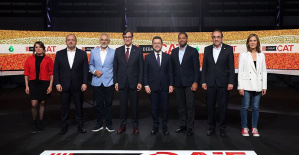 Illa does not clarify whether he will agree with Junts and Aragonès and Rull face a lack of unity
Illa does not clarify whether he will agree with Junts and Aragonès and Rull face a lack of unity At least twelve Palestinians die in Israeli bombings against Rafah
At least twelve Palestinians die in Israeli bombings against Rafah Gaza War | Direct: The Israeli Army takes the Palestinian part of the Rafah crossing
Gaza War | Direct: The Israeli Army takes the Palestinian part of the Rafah crossing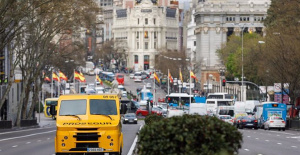 Prosegur Cash will distribute the first payment of its total dividend of 0.0404 euros on May 14
Prosegur Cash will distribute the first payment of its total dividend of 0.0404 euros on May 14 How Blockchain in being used to shape the future
How Blockchain in being used to shape the future Not just BTC and ETH: Here Are Some More Interesting Coins Worth Focusing on
Not just BTC and ETH: Here Are Some More Interesting Coins Worth Focusing on UMH researchers are working on a high-quality apricot crop that requires less irrigation water
UMH researchers are working on a high-quality apricot crop that requires less irrigation water The UPV develops an application to improve the quality of life of patients with glioblastoma
The UPV develops an application to improve the quality of life of patients with glioblastoma A sensor system obtains the fingerprint of essential oils and detects if they have been adulterated
A sensor system obtains the fingerprint of essential oils and detects if they have been adulterated Faraday UPV presents the 'Origin' rocket to exceed 10 km of flight: "It is the beginning of the journey to space"
Faraday UPV presents the 'Origin' rocket to exceed 10 km of flight: "It is the beginning of the journey to space" A million people demonstrate in France against Macron's pension reform
A million people demonstrate in France against Macron's pension reform Russia launches several missiles against "critical infrastructure" in the city of Zaporizhia
Russia launches several missiles against "critical infrastructure" in the city of Zaporizhia A "procession" remembers the dead of the Calabria shipwreck as bodies continue to wash up on the shore
A "procession" remembers the dead of the Calabria shipwreck as bodies continue to wash up on the shore Prison sentences handed down for three prominent Hong Kong pro-democracy activists
Prison sentences handed down for three prominent Hong Kong pro-democracy activists ETH continues to leave trading platforms, Ethereum balance on exchanges lowest in 3 years
ETH continues to leave trading platforms, Ethereum balance on exchanges lowest in 3 years Investors invest $450 million in Consensys, Ethereum incubator now valued at $7 billion
Investors invest $450 million in Consensys, Ethereum incubator now valued at $7 billion Alchemy Integrates Ethereum L2 Product Starknet to Enhance Web3 Scalability at a Price 100x Lower Than L1 Fees
Alchemy Integrates Ethereum L2 Product Starknet to Enhance Web3 Scalability at a Price 100x Lower Than L1 Fees Mining Report: Bitcoin's Electricity Consumption Declines by 25% in Q1 2022
Mining Report: Bitcoin's Electricity Consumption Declines by 25% in Q1 2022 Oil-to-Bitcoin Mining Firm Crusoe Energy Systems Raised $505 Million
Oil-to-Bitcoin Mining Firm Crusoe Energy Systems Raised $505 Million Microbt reveals the latest Bitcoin mining rigs -- Machines produce up to 126 TH/s with custom 5nm chip design
Microbt reveals the latest Bitcoin mining rigs -- Machines produce up to 126 TH/s with custom 5nm chip design Bitcoin's Mining Difficulty Hits a Lifetime High, With More Than 90% of BTC Supply Issued
Bitcoin's Mining Difficulty Hits a Lifetime High, With More Than 90% of BTC Supply Issued The Biggest Movers are Near, EOS, and RUNE during Friday's Selloff
The Biggest Movers are Near, EOS, and RUNE during Friday's Selloff Global Markets Spooked by a Hawkish Fed and Covid, Stocks and Crypto Gain After Musk Buys Twitter
Global Markets Spooked by a Hawkish Fed and Covid, Stocks and Crypto Gain After Musk Buys Twitter Bitso to offset carbon emissions from the Trading Platform's ERC20, ETH, and BTC Transactions
Bitso to offset carbon emissions from the Trading Platform's ERC20, ETH, and BTC Transactions Draftkings Announces 2022 College Hoops NFT Selection for March Madness
Draftkings Announces 2022 College Hoops NFT Selection for March Madness